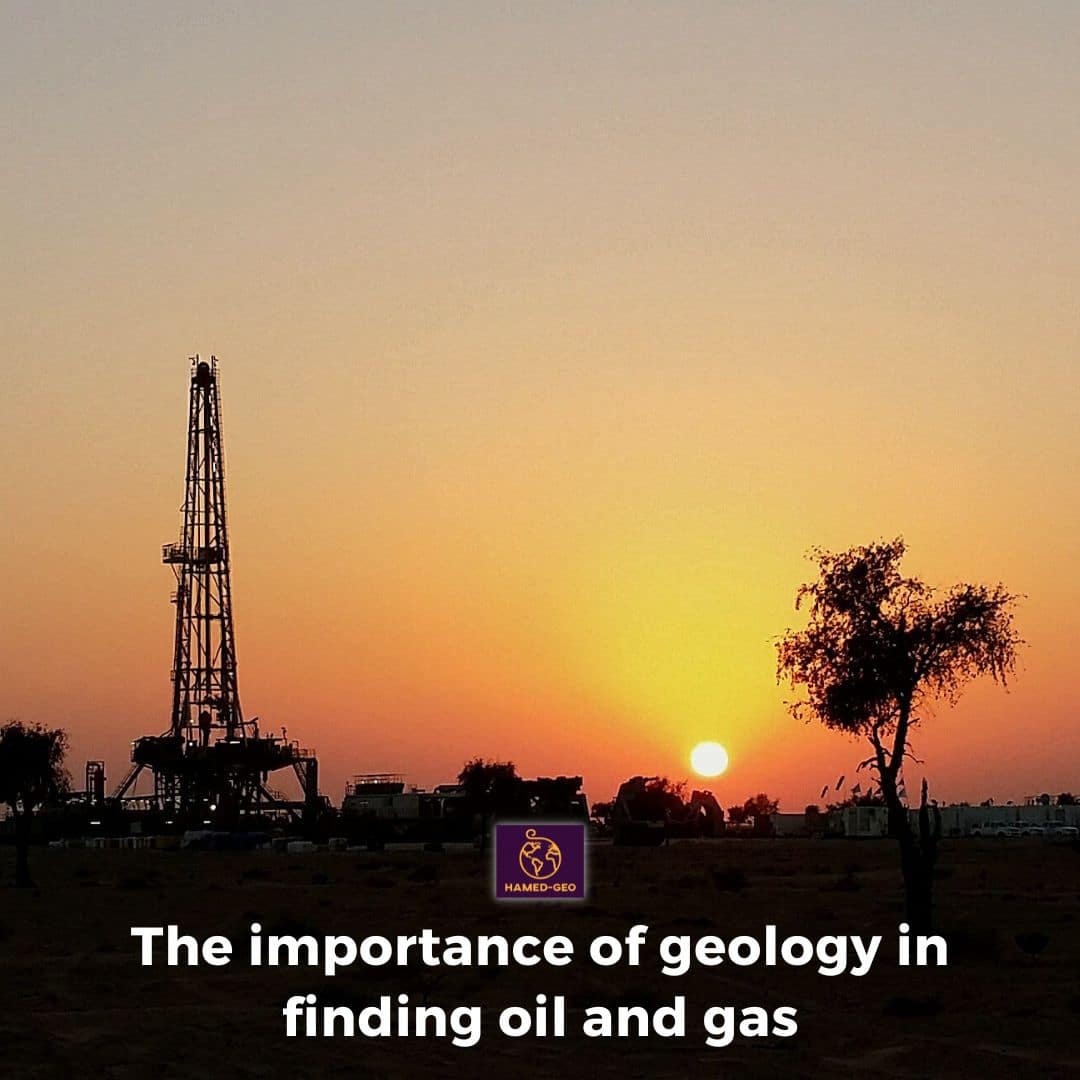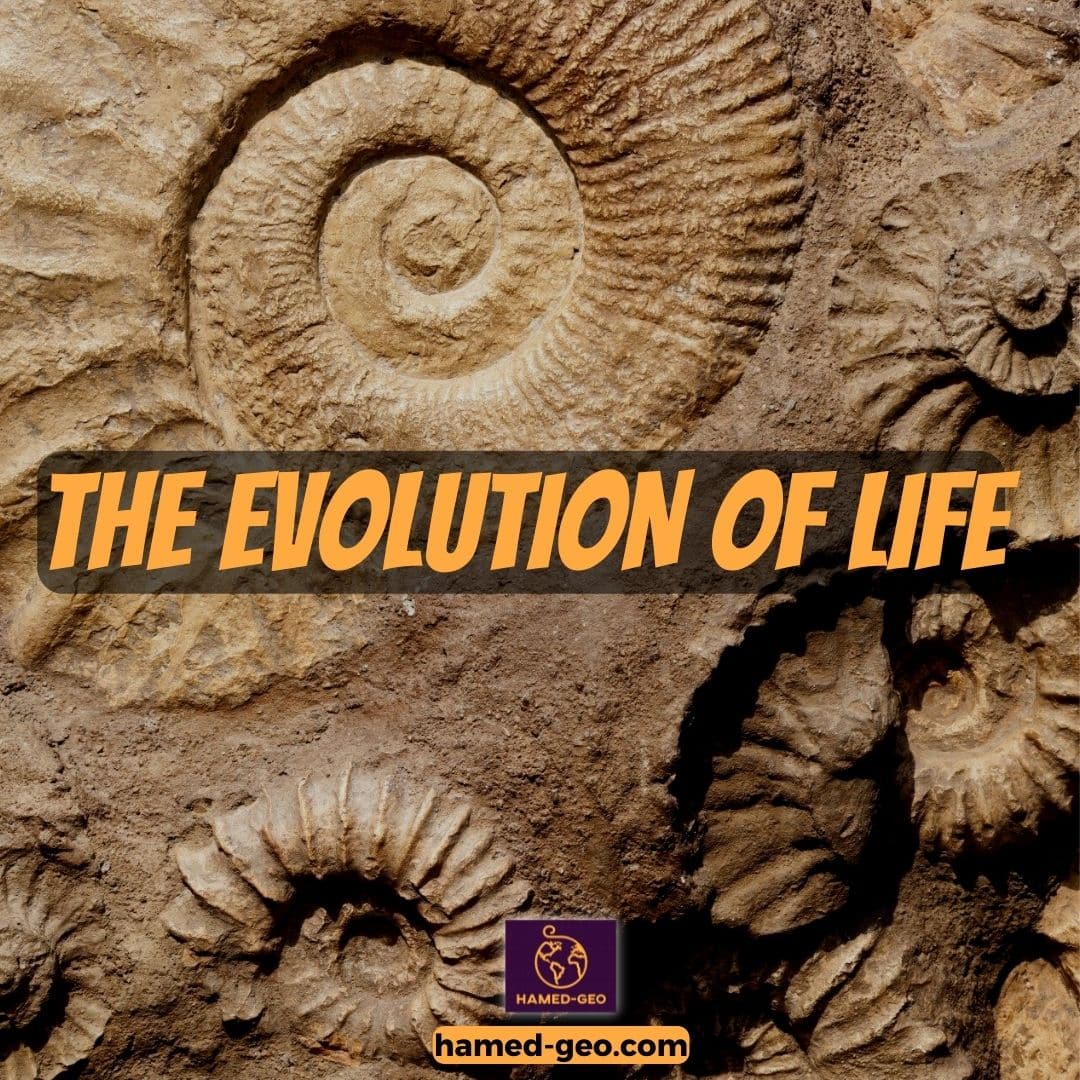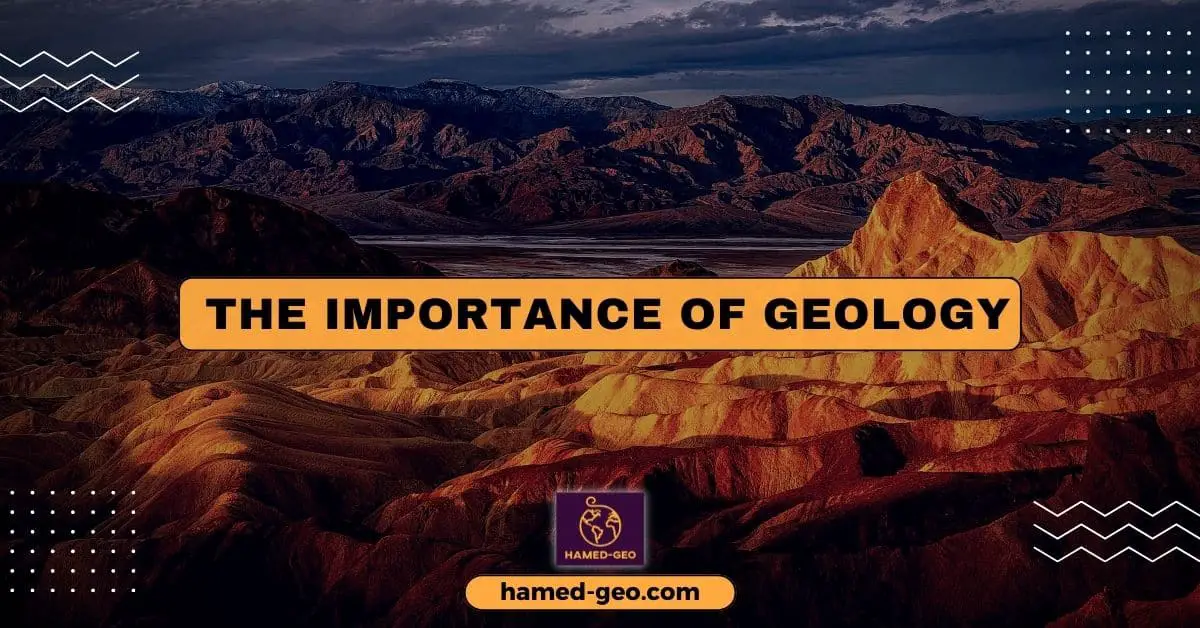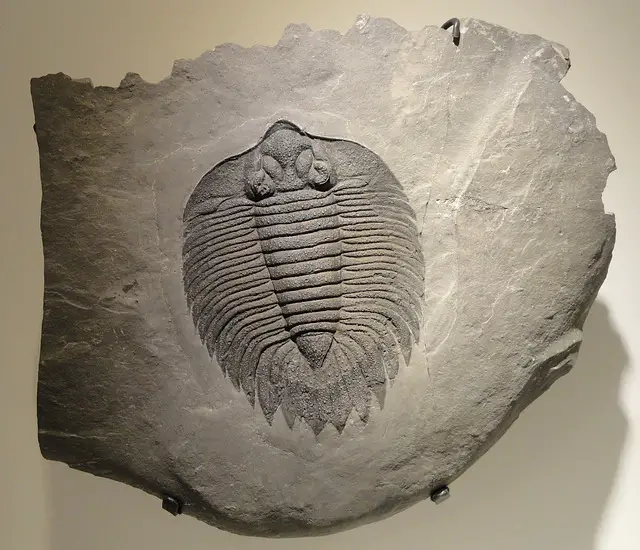We all know the importance of science to our modern world. But geology is the study of the Earth itself.
The world is a constantly changing place, which makes understanding the geological history of Earth and its features extremely important for anyone who wants to understand how the planet works.
The earth is a fascinating planet, and its surface is littered with mountains, volcanoes, and vast oceans. It’s a place where there are still mysteries to discover. Geologists are experts at studying and interpreting rocks, minerals, and other natural materials. Today, geology is used in a wide range of fields, from oil exploration and mining to weather forecasting and disaster prevention.
Geology is one of the most important elements to understanding the earth’s history and evolution, as well as the formation of rocks.
The importance of geology in finding oil and gas

Geologists are highly trained scientists who study rocks, minerals, and earth formations. They are responsible for determining where to drill for oil and gas, as well as for figuring out what kinds of wells will produce oil and gas in specific locations.
Geologists are responsible for finding oil and gas deposits. They use computers to help them figure out where to drill. They also use sophisticated equipment to find the best places to drill. Once they find an area that has oil and gas, they plan the best way to extract the oil and gas. Then they hire drilling experts to drill the well. These drilling experts use different tools and techniques to extract oil and gas from the ground. If they don’t find oil or gas, they must close the well and move on to another area.
How does Geology Affect Our Lives?
One of the most interesting things about geology is that it affects our lives every day. When you think about it, the earth itself is constantly changing, and as it changes, it impacts everything that lives on it. Even if you live in a place where there is no weather, there are still effects of the earth’s shifting tectonic plates. There are areas that are rising up and there are others that are sinking down. Those areas that sink down and become land can be used to build new cities and new homes.
The thing that most people don’t know about is that geology affects our lives every day. Every time you turn on the tap and fill up a glass with water, you’re using rock. This is because most of the water that we drink comes from underground aquifers. And every time you drive on a road, you’re relying on bedrock.
Geology’s Role in Agriculture
Geology can be a huge part of agriculture. There are several different factors that influence the productivity of a farm. Water is the primary factor, but there are also soil composition and microclimate factors that must be taken into account. Soil is made up of many different components, including clay, sand, silt, and even organic matter. This makes it important to know what kind of soil you’re working with. In addition to soil, other factors can affect the growth of plants. For example, in dry climates, the amount of sunlight received can be crucial.
Knowing what kind of soil you have is very important. The soil is made up of many different components. Clay and sand are two of the most common components of soil. These two components can affect the growth of plants. Soil that has a lot of clay is heavy and compacted. It tends to stay wet all the time. In contrast, sandy soil is light and loose. It tends to dry out quickly. These soils are often found in drier climates.
Geologic Hazards
Geologists and geophysicists work hard to determine the risk of an earthquake or landslide. They know that if there is a chance that an earthquake will occur, and that it is likely to be very strong, then it is wise to evacuate people and property in the area. But what if there is no chance of an earthquake happening? There are many factors that could prevent an earthquake from occurring. The best example of this is in the case of landslides, which are caused by the movement of water into cracks in rocks. If these cracks are too wide, then the rock will fail, and fall down. This means that there is a high chance of this happening, but there is also a chance that nothing will happen.
If you live in an area that is prone to earthquakes or landslides, then you need to be careful. The best way to protect yourself is to learn more about what you should do if there is a possibility of an earthquake. If you have any questions about how to protect yourself and your property, then you can ask your local government officials.
The importance of geology in the evolution of life

Life is not only a complex system, but it’s also a very long-lived one. The evidence of this is found in the fossils of life that are still around today, as well as the fossilized remains of organisms that lived hundreds of millions of years ago. What we see in the fossil record is that life forms change over time and that these changes are related to the environment in which they live.
We can see that the Earth has gone through many different phases. In the beginning, life was very simple and it didn’t exist. Then, it became more complicated. Then, life was more complex, and eventually, it reached its current state. So, you can say that life has evolved over the course of billions of years. What we see in the fossil record is that life changes. These changes can be caused by factors like natural disasters, climate change, and other human activities.
Geologists can also help locate natural resources
Geology plays an important role in the exploration of natural resources. Geologists are trained to understand the basic physical and chemical processes that occur within the Earth’s crust and mantle. They study the composition and structure of the Earth’s surface, as well as the rock and mineral compositions of the crust and upper mantle. This knowledge is essential in the search for valuable natural resources.
Most of the minerals and metals that we need for various applications come from the Earth’s crust. The main purpose of geologists is to study the composition and structure of rocks and minerals. Some of the most common minerals are calcium carbonate, silica, silicon dioxide, magnesium, iron, aluminum, potassium, sodium, titanium, and manganese. Minerals play a major role in the manufacturing of chemicals and materials, and they are widely used in industry. For example, limestone is used to manufacture cement, lime, and gypsum, while magnesite is the principal ore of magnesium.
Geology can provide insight on how our planet works
To understand how our planet works, you have to understand the geology. It’s a field of study that studies the composition of the Earth and its past, present, and future. Geologists can provide insight into how the Earth works, how it formed and how it is changing. They can help us understand where we’re headed and how we can adapt and survive.
Geologists aren’t just good at telling you about the history of the earth. They’re also good at figuring out what’s going on right now. Using their knowledge of geology, geologists can tell you how the planet is changing and why. Geologists can show you what happened to the Earth millions of years ago, how mountains were formed, and how earthquakes occur. With all of these things in mind, geologists can help you understand the processes happening today.
Geologists can also help find the safest places to live
Most people have no idea that geologists are the best people to ask about where to live. The reason for this is that they study the earth, and the earth tells them everything they need to know about where to live. So, if you want to find the safest place to live, a geologist can help you. They will tell you that, for example, California has earthquakes, and that these earthquakes are very likely to occur within the next 50 years.
Geologists can also help find the safest places to live. These are the safest places to live because they are in areas that have no active faults or fault lines. Geologists can also help you determine if there are any possible risks that might arise from living in a certain area. For example, if there is a possibility of a volcano eruption, you should be aware of that possibility.
It Tells Us About the Earth’s Interior
Geologists study rocks, minerals, and other geological features. These scientists use data collected by satellites, seismometers, and seismic imaging techniques to figure out what the earth looks like inside. This knowledge allows us to better understand how the Earth is structured. Scientists can use the data to understand the history of our planet. They also use the information to predict future earthquakes, landslides, and volcanic eruptions.
It Tells Us About Our Past
Geology is one of the most powerful sciences that can be used to learn about our past. Geology is the study of Earth’s structure and history and is one of the oldest branches of science. We can use geology to learn about all the different kinds of rocks, minerals, and even the past climate of our planet. Geology is also useful for predicting earthquakes and volcanoes and learning about the formation of mountains and plate tectonics. Geologists can tell us how long the Earth has been around and what kind of conditions have existed over the past several billion years.
It Tells Us About Our Future
Geology can tell us about our future. The earth is a living being, a dynamic entity that changes over time. As a result, our planet is always moving. We can see these movements today in earthquakes, volcanoes, and tidal waves. But there is one constant movement that we cannot see. It’s called tectonics. The tectonic plates are made up of rock and minerals, which move across the earth’s surface, carrying the continents along with them.
Geologists don’t study the past because they don’t know what the future holds. Geologists study the past to help us predict what the future will hold. They know that the Earth is constantly changing and that this is caused by natural forces and processes like plate tectonics, erosion, volcanism, and meteorite impacts. As geologists, we’re able to study the changes that occurred over millions of years. From this, we are able to deduce what is going to happen in the next thousand years.
In conclusion, Geology is one of the most important sciences today. It has a major impact on our daily lives. We use the rocks and minerals around us for food, fuel, construction, medicines, and many other uses.



